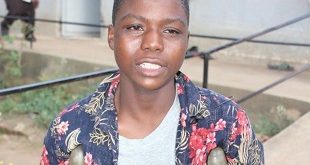
Kampala, Uganda | THE INDEPENDENT | Improving access to clean water for rural communities dominated debate on the Ministerial Policy Statement and budget estimates of the report of the Committee on Environment and Natural Resources.
Emmanuel Otaala, the Chairperson of the committee presented the report which was adopted during the plenary sitting on Thursday, 11 April 2024.
Otaala called on the lawmakers to approve an allocation of Shs50 billion to enable construction of one water source per village.
“The Ministry requires Shs1.5trillion annually for supply of unserved villages/population in the next five years using several strategies. However, given the economic constraints currently, the Ministry requests for at least Shs50 billion for implementation of at least one source per village as per the presidential directives for most critical areas below 50 percent safe water coverage,” the report read in part.
This spurred justification on the urgency to provide clean water, with Sowedi Kitanywa (NRM, Busongara County North) proposing an increment of the allocation from Shs50 billion to Shs100 billion to ensure access to clean water by the majority.
“There are areas where people still bathe in turns because of shortage of water. The Ministry requires Shs1.5 trillion for water sources and we are allocating only 50 billion,” he said.
Napak district woman Member of Parliament, Faith Nakut urged government to map out areas such as Karamoja that are water stressed in a bid to prioritise them, given the limited resources.
“There are some parishes where water table is terrible, drilling borehole cannot help, so those people do not have access to water for domestic use and yet any attempt to connect piped water exceeds the district’s budget,” she said.
Nakut added that consideration should also be made to desilt existing dams to increase commercial water production.
“Shs15 billion for constructing new dams is good but I suggest that part of it should be used for desilting the existing dams to save the water crisis,” Nakut said.
Tonny Ayoo, (NRM, Kwania County) underscored the need to change the policy on drilling of boreholes, saying that the current legal regime of one borehole per village is not tenable, given the growing population.
“We need at least two boreholes per village, but government should also motorize water using solar to ensure access to clean water by many,” Ayoo said.
Chief Opposition Whip, John Baptist Nambeshe, called for use of graft-flow water system to address water stress in mountainous areas.
“Water stress is equally in mountainous areas, where you cannot drill boreholes and people have to walk for hours to access water,” Nambeshe said.
The Committee further asked for additional funds of Shs335 billion for rural electrification projects.
“The Committee was informed that although rural electrification is intended to increase electricity access across the entire country, the ongoing rural electrification programmes require Shs498 billion but only Shs133 billion has been provided, leaving a funding gap of Shs365 billion,” read the report in part.
Minister of State for Energy, Sidronius Okaasai agreed with the committee’s recommendation for additional funding towards rural electrification projects, saying that energy is the driver of transformation.
“It is true we need to invest in rural electrification, we need additional resources, Chair and committee were spot on asking for more resources for rural electrification. We need affirmative action for energy just like we did for roads,” Okaasai said.
******
SOURCE: Uganda Parliament
 The Independent Uganda: You get the Truth we Pay the Price
The Independent Uganda: You get the Truth we Pay the Price



